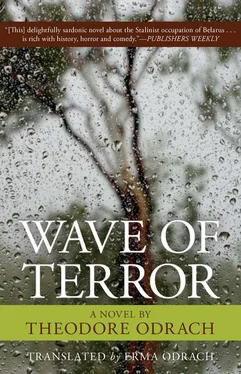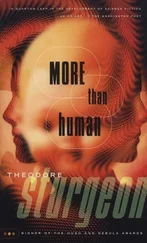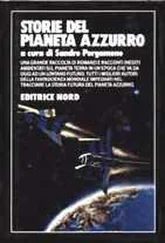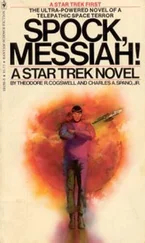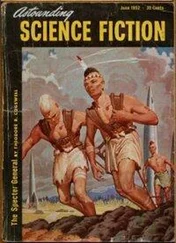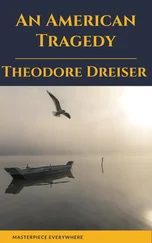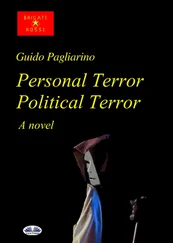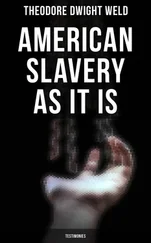When Kulik showed no sign of agreeing with her, she left without looking back, and slammed the door behind her.
The next morning to everyone’s surprise, Haya appeared in class looking refreshed and energetic, even with a twinkle in her eye. She seemed to have forgotten everything that had happened yesterday, and her looks had improved. Her unruly hair was neatly pulled back into a bun and her thin lips had a pinkish hue. There was even a touch of red in her cheeks. She showed every sign of wanting to set things straight. Smiling at the children, making a sincere effort to appeal to their better nature, she started the day with a lesson on the Russian language.
“Children! Children!” She clapped her hands. “Listen closely: Cyenia. Cye and nia make Cyenia . Now repeat after me, Cye-nia .”
But the children barely had a chance to open their mouths, when Ohrimko threw up his hand. He shouted out before being called upon, “Excuse me, Comrade Sruleyevna, but what does Cyenia mean?”
Haya, irritated, looked at him. “It’s the name of a malchik , of course.”
“And what’s a malchik ?”
“Oh, you stupid little boy. Just pay attention and not another word out of you! Now sit down.”
When she turned her back to the class and began to write on the board, Ohrimko, to the amusement of his classmates, stuck out his tongue and shot a paper airplane across the room.
Without question, Haya’s biggest problem was little Ohrimko. He was a troublemaker, he was ignorant of the school rules and had no desire to behave himself. He not only quarreled with his classmates, but he beat them, often until they bled. He couldn’t leave even the girls in peace, and enjoyed pulling their braids and kicking them from behind. In the schoolyard he was feared more than Lucifer himself. Just a few days earlier, he had jumped on Philip Mak, a boy two years older than he, brought him to the ground, and punched him in the face until he was black and blue. The children worried about whom he might attack next.
One day when the bell rang and the children were let out from their classes, Ohrimko thought of another scheme involving Haya Fifkina. He really wanted to get her this time. Hiding behind the schoolyard fence, peering from between the palings, he waited for her to come out. He was holding a snowball, which he had packed so firmly it was as hard as a block of ice. When Haya at last opened the door and walked into the yard, the boy raised his arm over his head, and as hard as he could, hurled the snowball straight at her, hitting her in the back. Haya shrieked, and losing her balance, fell into the snow. Ohrimko laughed and cheered. He sang out loud, “Haya rode on a goose high in the sky, until she came upon the Sabbath day, oy vey, oy vey, oy vey.”
Scrambling to her feet, red with rage, she ran after him. “You again!” she cried. “You little brat! Wait till I get my hands on you. What you need is a good thrashing.” She almost grabbed his collar, but like a bolt of lightning, the boy took to his heels and raced down the street.
When Haya appeared in school the following morning, prepared to discipline Ohrimko in the harshest way she could think of, to her dismay, she was met by complete chaos: the children were running around laughing and screaming; a few boys were wrestling on the floor kicking over desks and chairs; paper airplanes were flying across the room; and in the far corner several little girls were making a great fuss over something, jumping up and down, giggling and pointing to the floor. Haya had never seen such disorder. No one seemed to notice her standing in the doorway.
“Order!” she cried out. “Order in the classroom! Everyone sit down. Immediately!”
At the sound of her voice, the children fell silent and quickly scrambled to their seats. Haya looked for Ohrimko. He sat at his desk, bent slightly forward, wiping his nose with the cuff of his shirtsleeve. His chest heaved with suppressed laughter. It was instantly clear to her who had instigated this latest episode.
“What’s been going on here?” she demanded. Then with a look of absolute horror, she cried, “Who did this?” She pointed between her feet, where there were chalk marks everywhere. “Who’s responsible?”
Beneath the desks, all the way from the blackboard to the door, the entire floor was covered in chalked crosses.
“You little insubordinates, all of you! This is inexcusable!”
She swung around and made for her desk, hopping over the crosses as if she were afraid to step on one. Wide-eyed, their mouths agape, the children watched in silent amazement. They had just witnessed a spectacle. What they had suspected all along was true — Haya Fifkina was living proof of their suspicion: Jews were afraid of crosses, and if they touched one, let alone stepped on one, they would be cursed.
Haya lashed out at them. “Anarchists! Provocateurs! Ignoramuses! Don’t you know crosses are symbols of subversion, a fabrication of our oppressors? We don’t put up with that kind of nonsense anymore, we stand liberated, and all thanks to our Russian blood brothers.”
Clutching her head, she murmured under her breath, “Oy vey, where have I ended up? In some dismal, backward hole, with no hope and no future, just a band of counter-revolutionaries!” She wagged her finger threateningly at the children. “The education inspector is coming from Pinsk any day now and I intend to tell him everything. Every one of you will get a flogging with my special birch rod! Understand?”
She turned to Ohrimko. “Come here, young man.”
The boy slid from his seat, and watching her closely, edged his way slowly toward her desk.
“Wipe off those crosses! Right now!”
“I didn’t do it.”
“Liar!”
“That’s the truth.”
“I’m telling you, wipe off the crosses!”
When Ohrimko shook his head, Haya Fifkina lost control of herself, and lunging forward, grabbed his ear. She tried to drag him to the ground.
“Wipe off those crosses! Wipe them off, I tell you, now!”
Ohrimko, kicking and punching, tried to break free, but Haya kept him down with a firm grip. After a moment, managing to free his right leg, he kicked as hard as he could, striking her several times, once in the belly, twice in the head. Screaming, she let go of him. The boy raced to the blackboard, grabbed a wooden ruler from the ledge and started striking her with it. She covered her face with her hands, trying to protect herself from the repeated blows. The struggle continued for several minutes, until somehow Haya managed to knock Ohrimko across the floor. Breathless, she ran down the corridor and into Kulik’s office.
“Anti-Semitism! Anti-Semitism!” she cried. “This school is riddled with anti-Semitism. I almost got killed! I refuse to take it anymore. I didn’t fight for the emancipation of the proletariat and train to become a teacher so I could be run down by a band of fascists!”
Kulik was astonished. “Calm down, Haya, calm down. Please sit down. Now, tell me, what fascists are you talking about?”
“Those little monsters I’ve been assigned to teach. Fascists, all of them! And that Ohrimko Suchok is the worst of the bunch. I demand his expulsion immediately!”
She was in great distress and shaking. Her flat chest heaved with emotion, while tears rolled down her cheeks. Kulik tried to find something to say to calm her down, but he stopped short, afraid anything he said would only set her off even more.
She was thin, very thin, like a twig, and she seemed so helpless standing there trembling, almost tottering. He wondered how she had come to be here in Hlaby, so many miles from nowhere. She was not a teacher by any means, but a child, a mere child, who ought to have stayed home with her mother. With sympathy growing in him, he said at last, “I agree, it’s a very trying situation, but you must not forget that it’s a difficult time for the children as well. There’s been a complete overhaul, not only in the school system, but in everyday life. It’ll take time for them to adjust. All I can suggest is that you try and make them like you.”
Читать дальше
